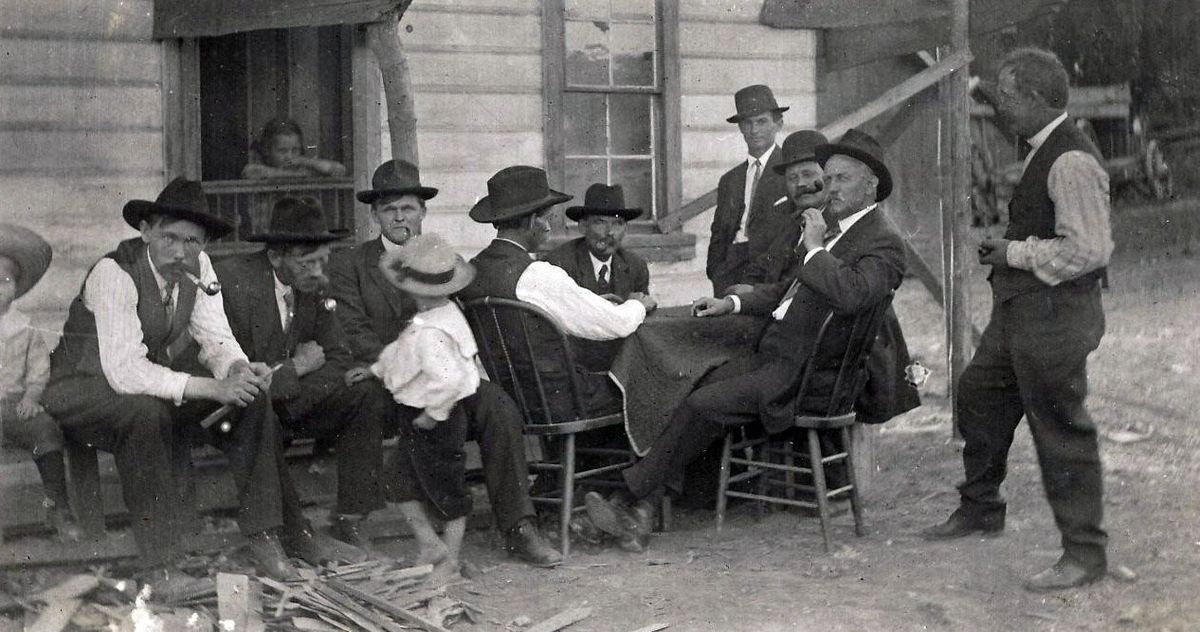Pandemic Projects: Scanning the past

A search to find and identify family photos turned into a labor of love and a coffee table book for Don and Dena Kopczynski.
“My pandemic project began with organizing and labeling historical family photos,” Don said. “I’ve always had a passion for photography and wanted to add names to old family photos while there were still people around who can identify the individuals. All of the sudden I had time to do it.”
In addition to the pandemic, Don had another reason to stay close to home.
“I was diagnosed with a second breast cancer, in August 2019,” Dena said. “This was a project he could do while taking care of me.”
Don began scanning pictures and emailing them to family members, hoping they could help identify the subjects.
“It was a way to stay connected with my two sisters and seven brothers,” he said.
Their family had been raised in Cottonwood, Idaho, and his grandfather had homesteaded in nearby Greencreek. A search for a photo of his grandfather’s farm led to Don connecting with Mike Wasko, an attorney in Nez Perce.
“Mike had a box of glass negatives of photos taken by Henry F. Nuxoll between 1908 and 1925,” Don said.
Nuxoll was a farmer, but also a photographer.
“He had the only camera in the area,” Don said.
Nuxoll’s 8-by-10 field camera captured weddings, baptisms, baseball teams, and rural life in Greencreek and Cottonwood.
Wasko invited Don to come to Nez Perce and look at his Nuxoll collection, including the box of glass negatives that had been stored in a barn in a wooden box that once held explosives.
Don purchased a scanner capable and traveled to Nez Perce in the spring of 2020 – the first of several trips.
Wearing white gloves, Don carefully removed the glass negatives from their paper sleeves.
“Mike and I got so excited when we’d scan the negatives and they’d become crystal clear,” Don said.
“We were blowing 100 years of dust off these negatives and breathing life back into these people. For Mike and me, it was joyful.”
The two strangers quickly bonded over their shared love of local history.
And the photos are remarkable. The untrained photographer used his camera to capture solemn toddlers, mustachioed men in their Sunday suits playing poker for beans, and lots of weddings, including a wedding portrait of a woman who’d lived across the street from Don.
He marveled at her youthful smile.
“I knew her as just an old lady,” he said.
Nuxoll also baked (and photographed) ornate wedding cakes.
“He was a Renaissance man,” Don said.
A photo of a small cabin proved especially poignant.
“Every German immigrant, including both sets of my grandparents, stayed in this cabin when they first moved to the area,” he said. “The cabin has now disappeared.”
Dena has always loved black and white photos.
“To me, these images tell a story,” she said.
She decided to create a coffee table book as a thank you to the attorney who shared the photos with them.
Four hundred of those 750 photos are featured in a book, she called “Capturing History: Henry F. Nuxoll Photographs 1908-1925.”
“It was a lot of fun looking and the pictures and imagining the families,” she said.
One of Nuxoll’s grandsons and Don’s oldest sister helped identify some of the people in the photos, but many are still unidentified.
Don plans to take the book to the annual Fourth of July celebration in Greencreek this summer and hopes to be able to put more names to faces.
He tapped a photo.
“These have to be somebody’s grandparents,” he said.
“Some cultures believe you die three times. First when your heart stops beating, second when they bury you, and finally when they stop saying your name.”
Cindy Hval can be reached at dchval@juno.com.